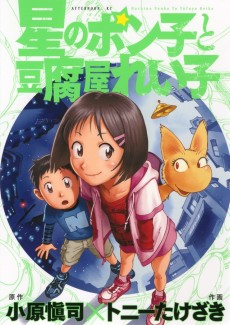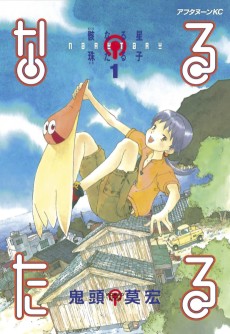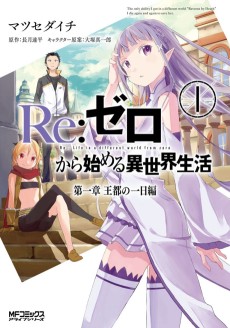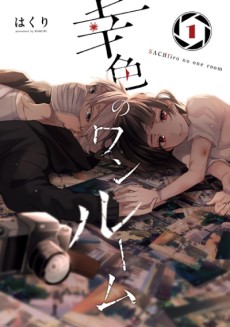TAKOPII NO GENZAI
STATUS
COMPLETE
VOLUMES
2
RELEASE
March 25, 2022
CHAPTERS
16
DESCRIPTION
Takopi travels from his home of Happy Planet to spread happiness across Earth, but meets the unsmiling Shizuka upon landing. Her friends at school and home life seem to be the source of her somber expression—and the pure-hearted Takopi is determined to change things for the better! But what truths await him when the curtains rise in this shocking drama?!
(Source: MANGA Plus)
CAST
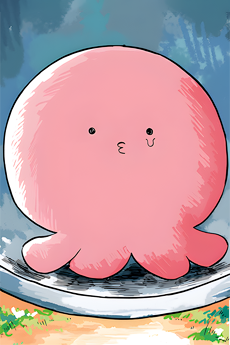
Takopi
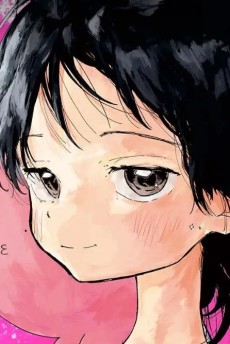
Shizuka Kuze
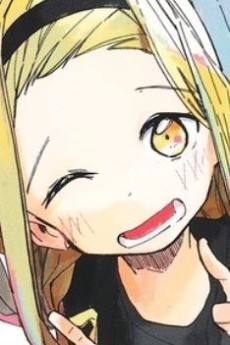
Marina Kirarazaka
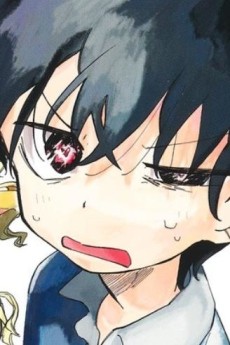
Naoki Azuma
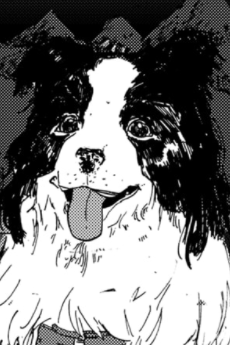
Chappy
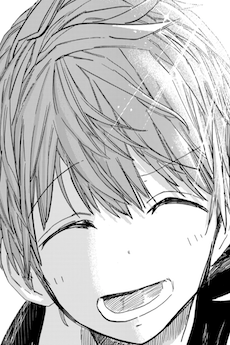
Junya Azuma
CHAPTERS
RELATED TO TAKOPII NO GENZAI
REVIEWS

TheArbitrator
80/100In all and all its a worthwhile read and hope it develops well through the course of chaptersContinue on AniListTakopi's original sin or Takopii no Genzai a manga described as too Much Dark and too cute for a being a shounen manga
Its a manga with bullying as its main theme, bullying which is tolerated in japan to the point of being encouragedA manga called to be too similar to Doraemon and Oyasumi Punpun which are totally different from each other and yet there ideas seem to blend too well together in the manga
The mix of reality and fiction is done in a really impactful way in the manga, the line between realism and fiction is really thin a way not really seen in any manga, A piece which feels to not be enjoyed by a lot but would honestly be loved by those who stay with it
The first chapter of this had me unsettled for a quite a bit but also very intrigued for the future of the manga and the storyIn the first chapter we meet the happiest alien who comes from the "Happy planet" in the entire universe whose life's purpose is to spread happiness and after he reaches Earth and meets a depressed called called shizuka who has no one other than her dog as a source of happiness he attempts his all to cheer her up. But it ain't easy to cheer up the tormented girl Shizuka who is badly mistreated by bullies at school. Even Though he tries his best he can't really do anything for her and his act of even giving her a tool to seemingly help her, results in a tragedy. The tragedy which was partially overshadowed, but it happening was still not very expected. The brilliance of this work is how fear and tragedy gets hidden in it. U can't really say if that was sad or tragic like as if a tear just forms but never really falls
The end of the chapter 1 really reminded me of the chapter 139 of Oyasumi Punpun a chapter which really breaks a person but unlike oyasumi punpun the existence of takopii the cute alien who doesn't have a speck of negativity and is full of optimism still make you hold on and not really get depressed by the way story goes on. takopii's lack of understanding of human emotions and experiences really makes it a unique way to see the situation as the story is also meant to be seen from his point of view about he sees the situation how he interprets it and how he develops feelings in the situations is something we can look forward to see
The Art of great it can be called messy but the way it blends with background is dangerously great and overall pacing of the story is great too It is still too early to give an overall score but its 8.0+ for now for me. If u loved oyasumi punpun u will highly likely love this too if u liked doraemon then......... u might like it too?
There is a saying "BROKEN CAN'T BE FIXED" and I do Hope this statement becomes false as the story progresses and eventually ends

saulgoodman
80/100Opening Doraemon's boxContinue on AniListSpoilers ahead. Skip to the end for a short, spoiler-free review.  ___
#
___
#__What's yours is mine and what's mine is mine__ It's a bit astonishing how universally known Doraemon is, even if one hasn't actually watched or read the series. Certainly, one doesn't need to watch Star Wars to recognize the famous scene but in case of Doraremon, it's been parodied and referenced so much in this medium that one can instantly recognize the Doraemon art-style, gags, even comedically-censored characters. And in lieu of Takopi, it seems quite inspired by the cult series, fashioning the light-hearted story into its own, grimy agenda.
Admittedly, though, Takopi himself is the only resemblance of Doraemon. Carrying the series' lightheartedness and an array of deus ex machina, only to be met with a setting that couldn't be further of a dichotomy from him. Appearance never absent with blood, bruises and dull eyes, Shizuka is the embodiment of grief that negates Takopi's embodiment of optimism and naivety. Spitting out cheerfulness and curiosity, Takopi's first meeting with Shizuka abruptly ends with her suicide via bullying and neglect. And begins reiterations and the exploration of happiness.
 ___
#
___
#__The pursuit of happiness__ Time manipulation is a homestay trope in works regarding the loss of innocence, and Takopi utilizes it well. Takopi essentially an organic husk with a default nature of extreme optimism, the reiterations of his meetings and rescue of Shizuka give chance to his development. Repeating the same actions for the initial reiterations, Takopi soon questions his and Shizuka's values of happiness. One key point being Marina's murder via deus ex machina. To this point, Shizuka's meek, submissive nature coupled with her kindness to a foreign creature like Takopi suggested a universal kindness to others. However, she's nothing but elated at the fact of her tormenter's death. Even to a naïve Takopi, murder is a taboo, creating an internal conflict situated between his desire to give Shizuka happiness, his repulsion to murder and Shizuka's glee at it. Out of good intent, Takopi opened a Pandora's Box with further ramifications.
Marina's death the turning point in the story, Takopi begins to explore the other cast, further developing the theme of subjective happiness. Marina's characterization follows the pattern of a relentless bully later saturated by a sympathetic background story, unfortunately doing nothing for me besides stifling yawns. However, it's rather how Marina's post-mortem reveal contributes to Takopi's development. A deus ex machina tool allowing him to take Marina's appearance and consequentially filling in for her after her death, Takopi turns from observer to actor, allowing him to experience the queerness and irrationality of human pathos than to continue questioning it.
Parallel to Shizuka, Marina's life is as thorny with family tension, child abuse, psychological trauma, the works. Rather than trying to redeem Marina as another victim, this subplot moreso solidifies Takopi's value of happiness as an exercise in futility. Where Shizuka's reiterated suicides couldn't cure his naivety, it's first-hand experience that lulls him into contemplating and doubting his planet's values of happiness as universal. Joyous pii chants nor deus ex machina proved to be answers to the chaos, leaving Takopi at a loss.
 ___
#
___
#__Sheep's skin__ Takopi's development aside, Shizuka shares the spotlight with subversive writing. As if her initial meek, kind demeanor hadn't existed to begin with, Shizuka's emotional manipulation and cynicism quickly bubble up with Marina's death as a catalyst. Regard of Takopi and her bespectacled classmate Azuma as friends changes to devices for her own happiness. Seeing Takopi's tools as convenience and Azuma as an easily-manipulated servant, Shizuka has no regard for others in pursuing her happiness; being reunited with her dog at her father's home. I did mention that Marina being redeemed as a victim would be dull, but conversely, Shizuka's transgression was a welcomed surprise. In fact, giving richer flavor to the thematic storytelling. Had she gone down the bullied character's yellow-brick road of selflessly forgiving those who wronged, never wronging others for others; it'd go against the grain of the story. Given how Takopi already fulfilled that role, with his ridiculous character seamlessly fitting the bill of an optimistic moralist, a just-as-extreme juxtaposition was necessitated. Marina perhaps could've fulfilled that role with her initial characterization, but her Stockholm's syndrome with her abusive, mentally-ill mother ruined her chance in the spotlight. Thus, without present family, friends or her dog, Shizuka took up the other end of the spectrum wonderfully.
In the midst of Shizuka's transgression and Takopi's development, though, Azuma shines quietly. Meandering somewhere between the ends of the spectrum defined by Takopi and Shizuka, Azuma's characterization concerning subjective happiness is the most down-to-earth. Chronicling his desperation to earn his doctor mother's approval and bitterness towards his high-achieving, caring older brother, Azuma's backstory, like the others, isn't so much important as it is the presence of others in his life. High off insecurity, Azuma differs from his fellow human cast in how he measures his happiness from the values of others' happiness. Thus, making for easy emotional manipulation pickings for Shizuka, Azuma unknowingly trudges deeper in the mud, too mesmerized by Shizuka's reliance and trust in him. In this way, Azuma parallels Takopi in their endeavors to fulfill their happiness through others, to unhealthy extents.
 ____
#
____
#__Who's right?__ Takopi's Marina doppelganger stint lasts temporarily, soon giving deep layer to his internal conflict. The second turning-point arrives at the reveal that Takopi originally came from the future where he had befriended an older Marina. Again, I've remarked that Marina's post-mortem characterization would come off as dull had it fully exploited her backstory as tragic, but it functions smoothly at this point in the story. With Shizuka's initial victimization and consequential manipulative behavior explored sufficiently, the second round of Marina's characterization acts parallel, delivering her character more than a faulty bully caricature. Moreso, however, this second stage depicts Marina's distress in light of not her, but Takopi's internal conflict.
Thus far, Takopi's internal conflict was defined by growing self-doubt of his values conflicting with the whiplashing realities of Shizuka's suicides and Marina's abuse. His Shizuka rescue mission seemed less of a moralist one, rather moreso a pursuit to satiate his befuddlement at Shizuka's actions denying his beliefs. His goodwill is certainly intact, yet Takopi's actions lacked clear consciousness until his first-hand experience as Marina's doppelganger stirred regret and despair over her death. The reiteration of Marina's characterization solidifies this foundational development, as Takopi remembers that his nonchalant promise to Marina to kill Shizuka. Upon this realization, Takopi internalizes a new conflict that perhaps best defines the overarching narrative.
You can't make everybody happy.
 ___
#
___
#__Happily ever after__ With grasp on the dismaying ramifications of his actions, Takopi refuses to help Shizuka's cynicism, both now at a loss at what course of action to take. Though, his once naïve reassurance turns to wistful hope, as Takopi uses one, final reverse time-leap deus ex machina at the cost of his own existence. This final reiteration sees its narrative to its end. True to Takopi's internal conflict and character, it plays out veristic and hopeful. I felt an irk in Azuma's previous monologue entailing his resolve and wish to help Takopi and Shizuka, yet the Azuma in this last reiteration never takes initiative in helping the still bullied Shizuka. Of course, memories of their time together aren't intact, but it'd be thematically sound and true to Azuma's development had something different happened. Perhaps Taizan intended to portray the potential futility-in-exercise had Azuma interacted with Shizuka, reiterating Takopi's internal conflict and overarching theme of one's inability to satiate everyone's happiness. Going by the latter, then Azuma was a brilliant thematic vehicle.
Compared to Azuma's melancholic thematic contribution, Shizuka and Marina's felt more sincere. While Takopi's bouncy naivety may have been irksome to many in the course of the story, it dissipates to feelings of hope. In the end, the two's sour relationship finally mellows out due to his guaranteed, one-hit-kill method to resolving bad blood; talking. About the blobby octopus himself, of course. Perhaps their ending is naïve and callow, but it's sincere in blatantly going against the grain from the rest of the story. While everyone thus far found themselves lost in their pursuit of happiness, the most elementary, trivial things may pave the road to it.
 ___
#
___
#__Fragile as glass__ Often, story and art needn't be in conjunction to bring out a series' appeal, but Taizan 5's art-style superbly fleshes out every aspect of the series. Masquerading the grim undertones with chibi designs with massive eyes, Taizan surprisingly works in detail to their rather blobby, moe characters. Speaking mostly of the eyes and fragile appearances, reminiscent of Mengo Yokoyari and Natsujikei Miyazaki. 90% of internal thoughts and emotions are conveyed through the detailed eye shading and supplemental background effects. Of course, the bruises often present on the characters are the most transparent conveyors but Taizan utilizes facial expressions, sometimes a lack of them rather, with commendable skill in the oft traumatic, dark scenes and dialogue.
Designs aside, Taizan additionally executes dark scenes well. While gore isn't a prevalent element in the art, the suicide and abuse scenes are whiplashing in effect. Perhaps my favorite aspect in this regard is Taizan's employment of untainted, white backgrounds in some of these chilling scenes, rather than opting for an easy heavily-shaded black. The series in general meanders between feelsgood, goofy moments complementing its young cast and grimy undertones elevated by the contrast with its young cast, and these particular panels feel like a bitter reminder of their lost innocence, with the white backgrounds almost ironic against the swirling abyss they find themselves in. A simple artistic choice, yet effective. Taizan works with not the most diverse set of artistic repertoire but knows how to skillfully exploit all of their cards to bring the full potential out of the story and characters.
 ___
#
___
#__Conclusion__ Takopi masquerades its dim story with bouncy character designs, but it offers much more than the novelty of its subversive bit. 16 chapters short, the series serves a wealth of fleshed-out characterization, character and plot development, all generously contributing to the thematic ceiling of subjective happiness. Depicting heavy-handed topics including child abuse, psychological trauma and murder, scenes frequent with them are far from novel shock-factor and keep the audience engrossed in the abyss the characters find themselves deeper in and darkening plot. Where some points of the plot are easy-to-step-in trope sinkholes, Taizan 5 tactfully keeps writing fresh and sensible. Don't allow the bully tag to deter you away, as the mangaka executes such a redundantly dull narrative in an engaging manner.
Despite its young cast of characters, Takopi is sincere and genuine in its themes. Thanks to the range and well-done exploration of internal conflicts imposed on its cast of 4 characters, the same overarching theme is explored and contemplated in 4 different lights. With a carefully-written tone that complements the tragedy of the story yet abstains from delving into blatant edge, the themes live up to their potential.
Writing-aside, Taizan 5's art is perhaps the connector of all these writing elements. Narrative and nuance can be greatly reinforced by mindful art. The dichotomy of the blobby moe and giant eyes of the designs, and dark writing never ceases to feel jarring to the audience, never failing to garner their attention at their actions and dialogue. Fragility and tension are common traits among its characters, best portrayed by the attention-to-detail in their eyes. For such a character-driven narrative, Taizan 5 plays their artistic cards right with simple art supplemented by subtle detail.
You know, more oft than not, these depressing, coming-of-age stories including Oyasumi Punpun, The Horizon and Neon Genesis Evangelion convey more hope and optimism than a 4-koma slice-of-life comedy. The depressing course of events only underline the final message of potential hope. Rather than complying with the somber, depressive tone it's been built up on, Takopi leaves off a small trace of hope.

bigcashphrog
80/100Love, hate, desperation, martyrdom, happiness, TakopiiContinue on AniListAnd to all of you who feel alone at the moment, may you grow up to be happy adults. This review has spoilers. We suffer. We always will suffer. Stuck in a perpetual cycle of suffering and attachment, birth and death, we are to be locked to this world, to sit here and suffer.
And yet we laugh, and we smile, and we hug each other in the best and worst times. We greet our friends, we kiss our soulmates, we enjoy good food. We live.
Such dichotomy seems to eagerly flow out of Takopii no Genzai, a dramatic manga with elements of fantasy.
It is a deeply unhappy story, with deeply unhappy people and deeply unhappy situations, yet there is such a faint, but shimmering glimmer of hope in it that almost makes the violence and the tears a simple vignette that forms around our smiles.It's a bitter fruit. You chew and chew, and nothing good comes out of it. You wonder why you're eating it in the first place. But then you cut the fruit up, you put it in a pot, you bring it to an uncomfortable simmer. Why you're doing so much just to partake in it is a mystery. You take it off of the pot and cool it, a long, equally uncomfortable process. And then you eat the bitter fruit jam — and this is what you wanted from it. This discomforting bitterness seeps into the jam, yet it is equally sweet, equally attractive. It is this uncomfort that may as well frame our lives, and it is this bitter fruit that, often times, we spend so much of our lives looking for.
The manga starts out, perhaps with the most classic set of events. A certain person (in this case, an alien) comes to the rescue of a bullied, "stray animal"-like character, something that will pave the way to a beautiful coming-of-age story. The role of the former takes on Takopii, an alien from the planet Happy, a naive, well-meaning creature; the latter role is left to Shizuka, the daughter of an escort, a victim of relentless school violence and bullying, the only companion of whom is a loyal dog named Chappy.
For days, Takopii does everything in his alien strength to help Shizuka do one simple thing — smile. It provides her with toys and gadgets and tries its best to adjust to the human society, so wildly different from its planet, with never-before-seen concepts of violence and hate. But at the very least, Shizuka seems receptive and appreciative of the alien's efforts, relaying to it some of her inner problems.And soon after, she commits suicide.
The manga takes a very sure turn into a different direction as Takopii struggles with its constant attempts to prevent the suicide from happening with his gadgets and alien beliefs. Each time, Takopii fails, over and over, and Shizuka constantly goes through a wide arrange of bullying and abuse, a fatalistic cycle.
We see glimpses of the others. A desperate Marina, her abuser, and a desperate Naoki, her benefactor. These are but glimpses, hints at the cracks, not exaggerated but clear and straight to the point. No person in this story ever wakes up feeling happy, at least not until the very end.
The story progresses even further after the manslaughter of Marina by Takopii. The sense of dread in the alien's mind keeps gnawing at it, yet seeing Shizuka so glowing, beaming with a smile so wide, so free of her worries puts Takopii on the road to help Shizuka keep smiling, keep laughing. Naoki is the sole witness, yet feels an overwhelming sense of duty before the frail, dainty girl. He wanted to be of use, for someone, for something.
The thorns before them cut them up and left them bleeding. It seemed as if there was no end to the regret and pain, the desperation, the neverending thirst for something to cling onto, for something to force a smile to grace one's lips. And only after Takopii's self-sacrifice in the end would the victims of the environment, the victims of this world would be granted a bit of respite.
No, their worries were not erased. In fact, they weren't at all eased — this was not a burden to be lifted so easily. Yet the three of them turned to each other, to a faint, ethereal connection between them formed by the naive martyr. There it was, as faint as mist — mutual understanding, mutual sympathy.
Over the course of this manga, Takopii acts as a martyr, bearing the cross of wanting to help everyone be happy. If it meant killing someone, if it meant acting as someone, if it meant being beaten to a pulp, if bringing a smile to the faces of these children would mean being destroyed, then Takopii would gladly be killed. The alien acts as a constant driving force, a bit of lost goodwill, not knowing whether he wanted to help Shizuka or Marina. Yet the realization that happiness is deserved by all, the realization of a non-dualistic world where there is no "good person" and "bad person" moves it to give up its own life to simply see these beaten up souls smile once more. Takopii constantly acts as a fool to the circumstances around them — yet it is this foolishness, this naivete and a bitter willingness to love all that saves the three.
There is so much suffering in the world, yet we laugh. There is so much to love, yet we cry. Happiness is not mutually exclusive to suffering, and even in a life full of suffering we find something to be happy about. These souls feel and understand this to a degree that is sickening and depressing. Yet in the end, that faint glimmer of hope had finally been caught, and the world was anew. The bits of the fruit had finally been simmered, and they could finally breathe and eat the bitter, greatly disconcerting, strangely sweet jam. There will always be this jam at the end — even after the thorns and spikes, the lakes of fire and the trees of swords, the agonizing pain of being, all of it will lead to this sweetness of life. Perhaps, this too was Takopii's gadget from planet Happy.
SIMILAR MANGAS YOU MAY LIKE
 MANGA DramaOyasumi Punpun
MANGA DramaOyasumi Punpun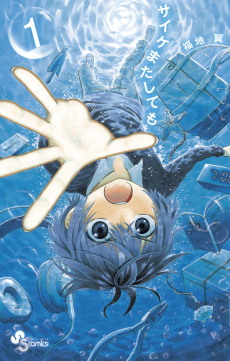 MANGA ActionSaike Mata Shite mo
MANGA ActionSaike Mata Shite mo MANGA DramaSteins;Gate
MANGA DramaSteins;Gate MANGA DramaShounen no Abyss
MANGA DramaShounen no Abyss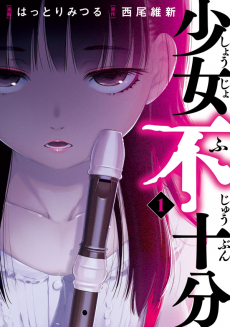 MANGA MysteryShoujo Fujuubun
MANGA MysteryShoujo Fujuubun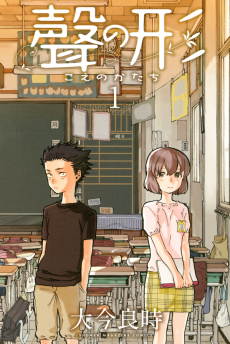 MANGA DramaKoe no Katachi
MANGA DramaKoe no Katachi
SCORE
- (3.8/5)
TRAILER
MORE INFO
Ended inMarch 25, 2022
Favorited by 670 Users
Hashtag #タコピーの原罪


